Eight things Google should be thankful for in 2012
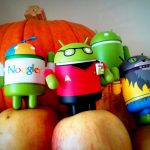
US Thanksgiving is a time for reflection on the year behind, with plenty of time to ponder resolutions for January 1st. Yesterday, I posted about the things Microsoft should be grateful for in 2012. Today, I followed up with another, for Google. For consistency's sake, the list numbers eight, in line with Microsoft's, for which I chose to hat-tip Windows 8.
The list is by no means comprehensive, just some things that stand ahead of others -- and it is organized from least to most important. Google had a great year, perhaps the best ever. Few companies released more innovative products, affecting so many people and building such positive brand awareness.
You can thank Microsoft for iPhone's retreat before the Android Army

Two months ago, I declared Android winner in the smartphone wars. The victory is now broader, in a total route of all competing operating systems and in process driving down iOS market share. That's right, after more than five years of near-constant growth, Apple's platform retreats before the Android Army.
Android's global smartphone OS share rose a stunning 19.9 points year over year in third quarter, according to Gartner. That's to 72.4 percent, up from 52.5 percent. Meanwhile iOS fell to 13.9 percent from 15 percent.
Which survives the drop test, iPad mini or Nexus 7?
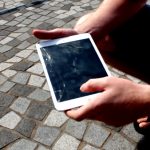
To be honest, you really don't want to know which one. Some tragedies are simply too painful to see. But if you delight in car crashes, then do watch Darcy LaCouvee plummet the Apple and ASUS/Google tablets to the cement. Informal drop tests like this one aren't exactly scientific, if for no other reason than Chaos theory. But they're nevertheless revealing and entertaining.
Like the iPhone 5 vs Galaxy S III drop test, the Android Authority reporter waited until the Apple device starting selling in stores to drop-test the tablets. He's back again from Hong Kong, in this riveting 5:39 video.
Three out of four smartphones ship with Android

Android's ascension over iPhone reached the figurative stratosphere during third quarter, according to IDC. Seventy-five percent of smartphones shipped with the operating system -- that's up from 57.5 percent a year earlier. By comparison, iOS nudged up to 14.9 percent, from 13.8 percent. That's right, little more than 1 percent. There's a reason that in September I asserted "Android wins the smartphone wars". There's certain appropriateness to IDC releasing the data on Day of the Dead.
Out of fairness to Apple, iPhone unit volumes rose considerably more, 57.3 percent, than market share reflects -- 26.9 million units compared to 17.1 million a year earlier. Android shipments rose 91.5 percent; 136 million, compared to 71 million in Q3 2011. Still, Android volumes in the quarter exceeded that for all smartphones in 2007. My how the market has changed.
Apple Q4 by the numbers: $36B revenue, $8.67 EPS misses Wall Street consensus
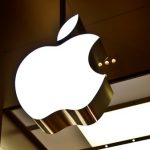
Late this afternoon, Apple announced another blow-out quarter and closed fiscal 2012, ending Tim Cook's first full four quarters as CEO. The challenge ahead is to maintain or to even extend momentum as cofounder Steve Jobs' influence over strategy and product development grows more distant. He died a year ago last month.
On Wednesday, financial analysts got an unexpected October surprise, and not iPad mini. Cook revealed that Apple sold its 100 millionth iPad about two weeks earlier. Problem: By that reckoning most analysts had over-estimated the tablet's quarter. Philip Elmer-DeWitt sums up the impact: "As a group, these analysts lowered their iPad estimates an average of 2.67 million units. Most also lowered their revenue and earnings estimates, an average of $1.26 billion and $0.31, respectively". If you're an investor wondering why Apple shares declined most of the day ahead of earnings, there's a reason.
Good news for Samsung: Apple trial patents ruled invalid

Uh-oh. While Apple was launching all its new and improved products yesterday, bad news brewed in the background. I just hope the company hasn’t pre-emptively spent any of the $1.05 billion it was awarded from Samsung recently, because the US Patent and Trademark Office has just ruled that 20 patents relating to overscroll technology (the bounce effect that happens when you scroll beyond the edge of an image or document) are invalid, and that could spell problems for the Cupertino, Calif.-based corporation.
According to Groklaw, "the notorious rubber-band patent [Apple's] been going after Android with, has just been tentatively rejected by the USPTO on re-examination. Apple has two months, until December 15, 2012, to respond and try to save it".
Half of Apple devices already run iOS 6

Today, during a special media event, Apple CEO Tim Cook revealed that 200 million devices already have iOS 6. That works out to half cumulative shipments -- 400 million. The company may update that number during its quarterly earnings call in two days.
The number starkly contrasts with Android, where just 1.8 percent of devices are on newest version Jelly Bean. The difference demonstrates the extent of operating system fragmentation of one versus the other. Uniformity offers many advantages to developers and customers using their apps. Consider this: Jelly Bean released in mid-July, iOS 6 last month. So Apple reaches considerably more users with its newest OS than does Google. There is no comparison.
Tough luck, iPad, Android owners read tablet publications more often

More Americans are discovering what I did, after buying the original iPad more than two years ago: Reading ebooks, magazines and newspapers on a tablet is an immersive experience and often much more satisfying than print. Today, comScore says that in August, two out of every five US tablet owners read a newspaper or magazine and one in 10 did so almost every day.
The numbers' meaning is greater when taken in context of another. Pew says that during the same month, one in four Americans used a tablet (22 percent as owners, 3 percent borrowing one belonging to another household member). Make no mistake, magazines and newspapers are going digital in ways like nothing seen on the Internet, because of publishers' ability to deliver richer content -- at that, more frequently -- and actually make money doing so.
US smartphone market consolidates around Android, iPhone
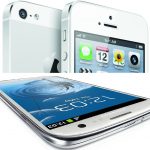
In a move appropriate for another two-party presidential election season, there is now little room for three dominant smartphone operating systems. The US market is now decisively consolidated around just two, Apple and Google platforms, as rivals -- including BlackBerry and Windows Phone -- make brisk retreats.
For the three months ended in August, Android and iOS had combined 86.9 percent smartphone subscriber share -- that's up from 82.8 percent at the end of May, according to comScore. August 2011: 71 percent. As combined share approaches 90 percent, a third-party contender looks less likely. Both potential candidates lost share during the three months, all gobbled up by the leaders.
Who puts faith in Apple, who in Google

Some companies really know how to maximize marketing, and drive up their share price in the process. In March, Apple used a countdown clock to boast about 25 billion App Store downloads. Google's mobile store reached the same number this week, announced with little fanfare today.
Apple shares traded for about $531 then, but rose sharply following the app milestone and thereafter fairly consistently in the wake of a series of well-marketing managed announcements or product releases, topping $700 this month. There are daily reports across the InterWebs about record share price. Meanwhile, more meager marketer Google, which share price also flies record high this month -- above Apple, at $764.89 peak -- is largely ignored. Perhaps pro-Apple bias contributes to the silence? Whatever, Google has big numbers of its own.
Android wins the smartphone wars

In October 2009, I explained why "Apple cannot win the smartphone wars". That was just a year after Google launched the first Android handset, the G1, on T-Mobile and days after Verizon debuted the hugely-successful Motorola Droid. By end of that year, Android had paltry 3.9 percent smartphone sales share, according to Gartner. My prediction drew loads of criticism from the Apple Fan Club of bloggers, journalists and other writers.
Fast-forward to second quarter 2012 and Android's global sales share is 64.1 percent for all phones, not just smart ones. iOS: 18.8 percent. My how times change. Increasingly, Android and iOS look exactly like Windows and Mac OS in the 1980s and 1990s, as I predicted would be the case.
Five reasons iPhone 5 disappoints

A new iPhone is Apple's chance to drive competitors nuts, to take technological innovation to new heights and to leave the stage with a justified smug look, but as the dust settles from yesterday's launch event the new handset feels dated already. The Cupertino, Calif.-based corporation should smash the competition to bits but that hasn't happened, has it?
iPhone 5 is not the revolutionary product that could set the world on fire and just like my colleage Wayne Williams I wonder "Hey, Apple, where’s the innovation?" There is a saying that's perfect for landmark product releases: "Go big or go home" and Apple should have followed the former not the latter for what will most likely be flagship device over the next year. It's not enough to sway the current cutting-edge Android smartphones to the curb, so how can it when there will be fierce competition from Windows Phone 8 devices like the Nokia Lumia 920 or Samsung ATIV S?
Cumulative Android device sales push past iOS for first time
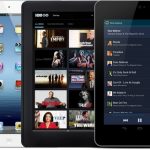
In what can only be described as a turning point for post-PC operating systems, cumulative Android device sales now exceed iOS, and in a shorter time period. Today, during a special media event, Apple reduced the cumulative number of iOS sales to 400 million -- that would be since iPhone's debut in June 2007. But yesterday, Google put Android sales at 500 million, from the G1's launch four years ago this month. The days of iOS' perennial lead are over.
Android has been on the catch-up track for better part of the year. At the end of June cumulative iOS shipments were 410 million, according to Apple. Why CEO Tim Cook put the number at 10 million less today is anyone's guess. Days before the quarter ended, Google put cumulative Android shipments at 400 million. A few months earlier: 365 million and 300 million, respectively. Daily Android activations now total 1.3 million, up from 900,000 in June, according to Google.
Don't expect too much from iPhone 5 sales
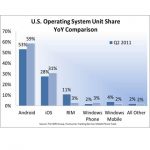
Finally, someone is brave enough to give iPhone 5 a big reality check. Who better than Stephen Baker, NPD's vice president of industry analysis?
"Ahead of the expected launch of the iPhone 5", he says, "there is a growing expectation that this release will achieve the equivalent blowout sales success that the iPhone 4s enjoyed; however, a careful review of the sales history reveals that, while the new iPhone may be a gigantic success around the world, the inevitability of similar success in the US is not quite so pre-determined".
The devil is in the details of Google's free Boingo Wi-Fi deal for Android devices

Today, public Wi-Fi hotspot provider Boingo Wireless announced a promotional partnership with Google Play that gives Android users free Wi-Fi access in 4,000 different locations across the United States (including fifteen major airports) for the rest of September.
The promotion encompasses Android-based smartphones and tablets, as well as Windows and OS X PCs, on the assumption that they can still be Android mobile device users when using a PC.
Recent Headlines
Most Commented Stories
BetaNews, your source for breaking tech news, reviews, and in-depth reporting since 1998.
Regional iGaming Content
© 1998-2025 BetaNews, Inc. All Rights Reserved. About Us - Privacy Policy - Cookie Policy - Sitemap.